The Young Gods: four decades of electronic experimentation
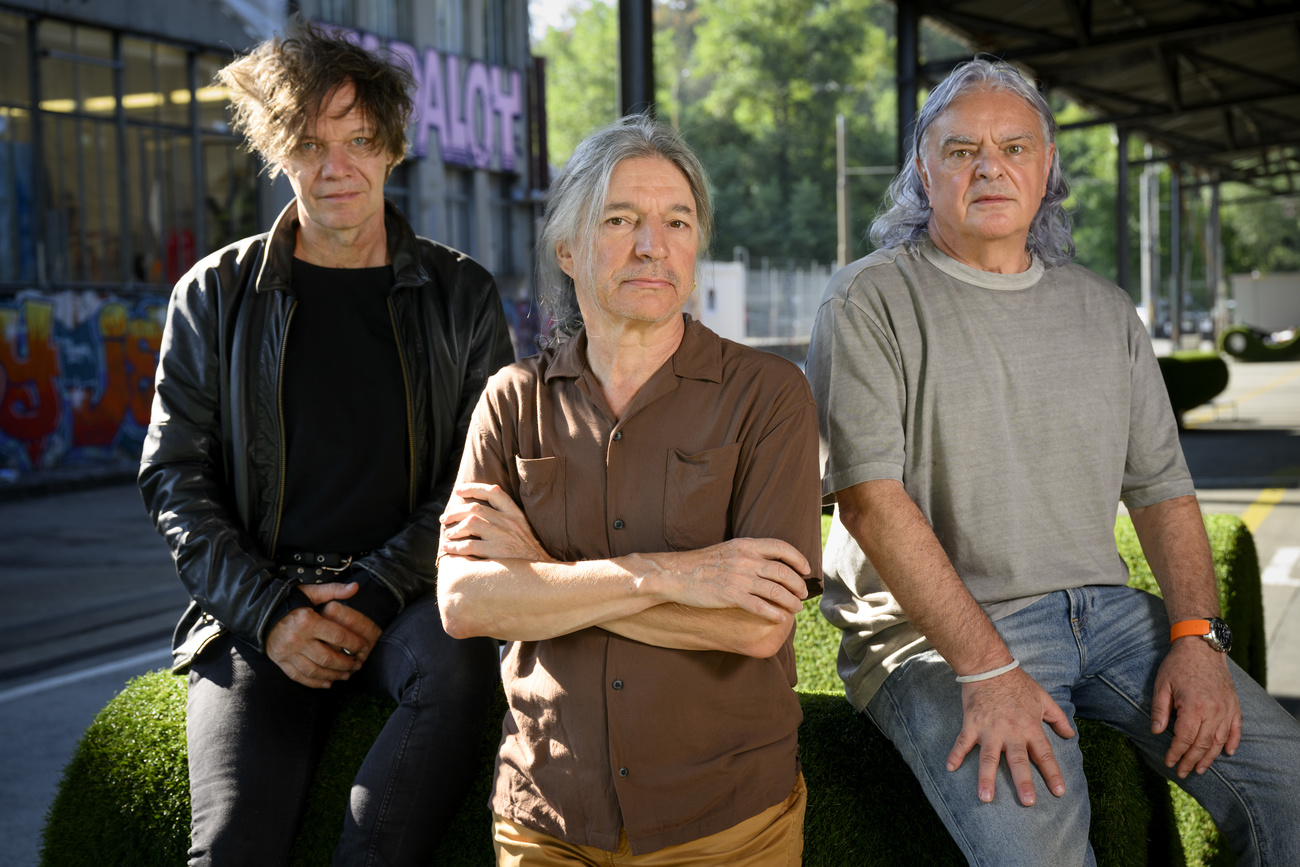
How do you sample a chord progression, turn it into loops, and mix it with rhythm to create an entirely new piece of music? Swiss band The Young Gods nailed the technique almost 40 years ago and became a global icon of industrial rock. Today, the band is experimenting with electronic minimalism.
On May 24, 1985, in an abandoned power station on the banks of the River Rhône in Geneva, The Young Gods switched on their amplifiers, and the sound of Envoyé hammered the audience. “Lots of noise. Lots of bodies. A war inside. A war outside,” Franz Treichler roared, while drums pounded at 300 beats per minute, followed by guitar loops and shooting sounds.
Envoyé was hardly a traditional Swiss ode to the mountains; it was a fresh cry of revolt. The industrial-rock genre was new to Switzerland and went on to mark the history of music.
Today, nearly 40 years later, Cesare Pizzi (sampler, computer), Bernard Trontin (drums, synthesisers), and Franz Treichler (guitar) are seasoned artists. In 2014, Treichler received the Swiss Grand Award for Music. Still innovating, and inspired by an American pioneer of minimalist music, the group released its 12th studio album in September: The Young Gods Play Terry Riley In C.
November 14, 1961: Born in Fribourg.
1971-1983: Studied classical guitar at the conservatories in Fribourg and Lausanne. Awarded diplomas qualifying him as professor and virtuoso.
1976: Second prize in Milan’s 11th international classical-guitar competition. First prize in the Swiss classical-guitar competition for youth.
1979: Founded Fribourg’s first punk band – Johnny Furgler & the Raclette Machine – with Cesare Pizzi and Jacques Schouwey.
1981-1983: Member of the not-for-profit organisation Fri-Son.
1985: Moved to Geneva and formed the band The Young Gods with Cesare Pizzi and Frank Bagnoud.
1997-2003: Musical director of the Gilles Jobin dance company.
2005: The Young Gods celebrated their 20th anniversary at the Montreux Jazz Festival.
2014: Received the Swiss Grand Award for Music.
Piece of anarchy
In C was first performed by Terry Riley in 1964. The score fits on a single sheet of paper and contains only 53 musical phrases (sets of notes that form the smallest unit of meaning in a composition). Each phrase can be repeated at the discretion of each musician. The composer recommends 35 musicians for the piece, but it also works with fewer. They are encouraged to play the phrases starting at different times, but everything else is open to interpretation: the length of the piece, the instruments they use, the style, and even the tempo. There is no need for a conductor. What is most important is the interaction between the musicians on stage.
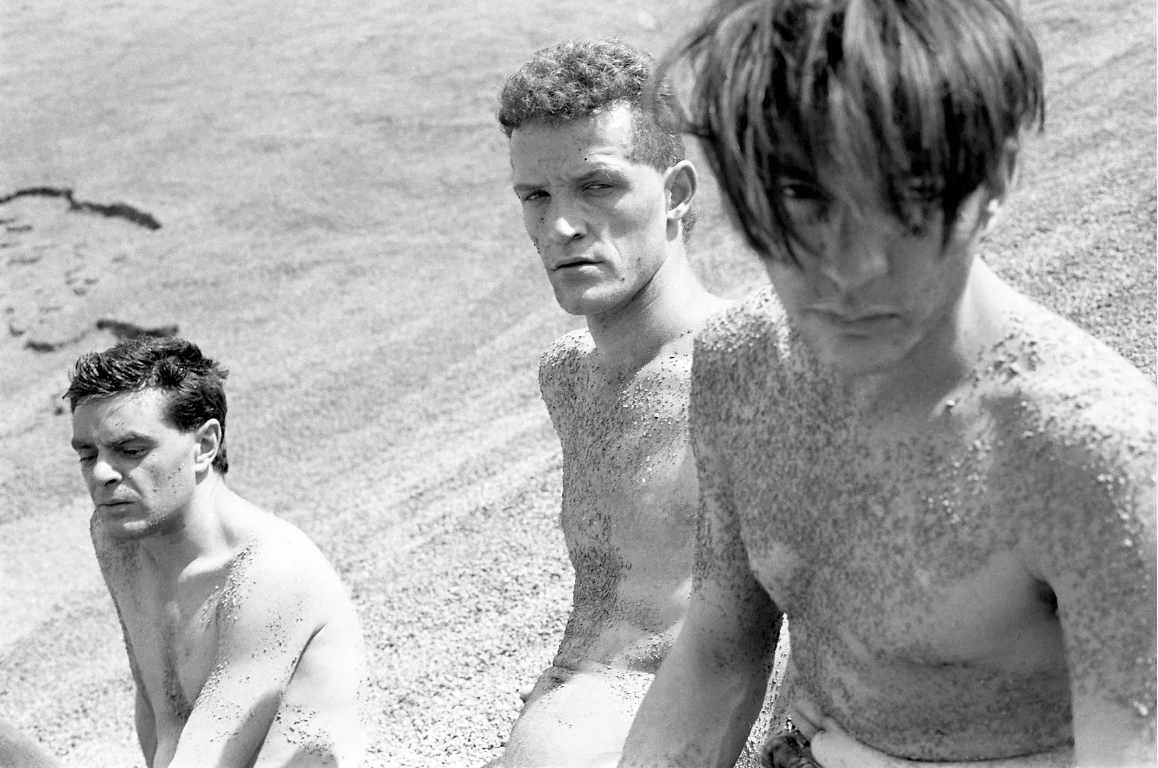
More
Evolving deities: the Young Gods through the decades
The Young Gods played In C for the first time in 2019 with the Landwehr, the official orchestra of the city and canton of Fribourg. The result was so powerful that the three musicians decided to make a studio recording in one take, in one hour, without cuts. The result is intimate: the percussion starts in a crescendo; the loops arrive and overlap; the notes echo each other, creating a dreamy introspective atmosphere, and slowly disappear in a decrescendo.
If The Young Gods’ version of In C brings to mind the sound of 1980s pop, this is not accidental. In addition to guitar, drums, and synthesisers, the musicians also used various historical instruments from the swiss museum for electronic music instruments (smemExternal link) in Fribourg. These included the Oberheim OB-8 synthesiser, a model used by the Pet Shop Boys duo, and the Prophet 5, the first polyphonic synthesiser with programmable memory, which Michael Jackson used on his album Thriller.
Roots in bossa nova and rock
The Young Gods trace some of their roots to Brazil. Treichler’s full name is Francis José Conceição Leitão Treichler; his father is Brazilian. “We always listened to music at home. There was a piano, and my father had a bossa nova collection,” Treichler said in the band’s rehearsal studio in the basement of an old garage in downtown Geneva. The studio is a cramped space made even tighter by countless amplifiers, drums, instruments, computers, and mixing desks. The only decoration is a Brazilian flag that covers a monitor.
Treichler’s father was the editor of the Portuguese-language division of Swiss Radio International (SRI), the predecessor of SWI swissinfo.ch. “We were surrounded by Brazilian beats,” Treichler said.
But his biggest inspiration came via his brother, five years his senior, who brought home a Deep Purple record. And as a birthday present one year, Treichler received The Doors album L.A. Woman, which he listened to constantly. When Treichler was 11, his father offered him classical-guitar lessons with a Brazilian friend who taught at the conservatory in Fribourg.
In late 1985, shortly after founding The Young Gods, Treichler arrived in London to mix the band’s first tracks. “At the time we were working with Roli Mosimann, a young Swiss producer with whom we recorded a few tracks, including Envoyé,” he said. The band’s work caught the attention of Melody Maker, one of the UK’s most prestigious music magazines.
Two years later, when the band released its first album – The Young Gods – the magazine declared it album of the year. “It was an incredible thing for a small Swiss band,” Treichler recalled. “We were considered experimental. No one in England was doing anything similar. And so English journalists started coming to Switzerland to interview us. They asked us how we, as Swiss, managed to make music like that.”
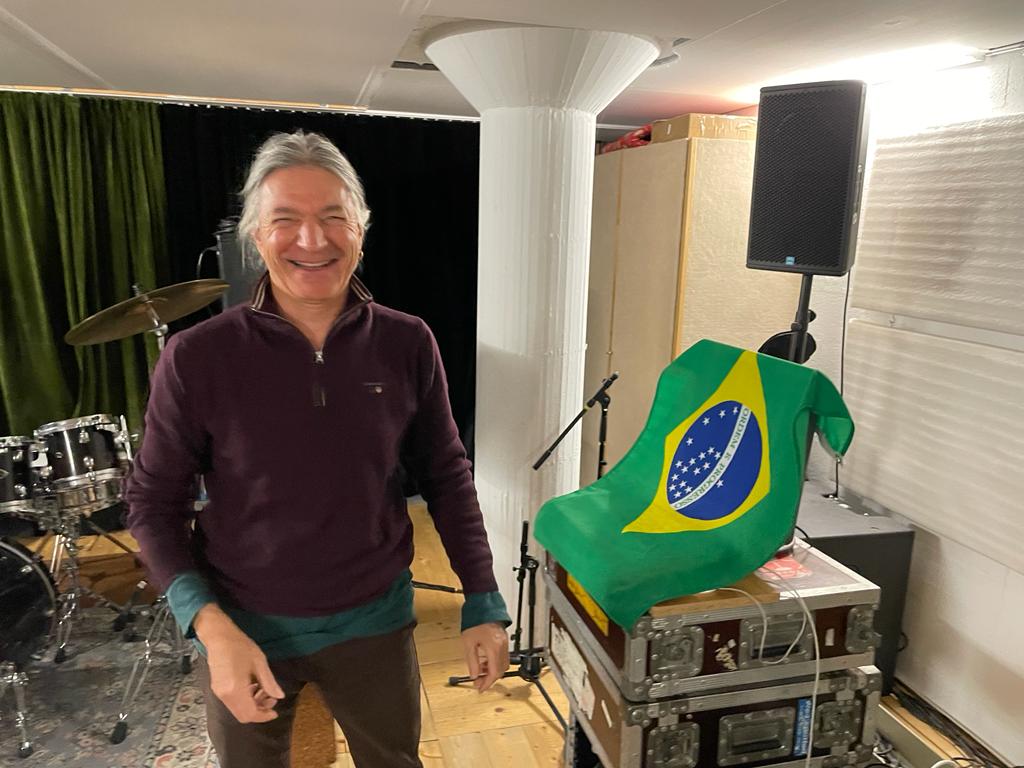
Treichler believes the musical signature of The Young Gods – the mix of instruments and sampled sounds – comes from his desire to stretch the limits of instruments. “I wanted to make rock music with different technology and by mixing aesthetics,” Treichler explained in journalist Olivier Horner’s biography The Young Gods: Longue Route 1985-2020. “As a classical guitarist, I felt like I was going in circles, always falling back on the same chords. So I wanted to adopt another approach to composition, based purely on sound rather than tonality.”
Minimalists
Why the name “The Young Gods”? Treichler explained that it comes from the song Young God by Swans, an influential band in the American experimental-music scene. He helped organise Swans’ first concert in Switzerland in 1984.
Treichler went to the United States in 1991 to record T.V. Sky, the album that would become the band’s magnum opus. He was seeking inspiration in the birthplace of rock and roll. Working in a studio, Treichler recorded songs and loops that were later worked on with his band mates. The Youngs Gods were already known on the music circuit in the US and Europe, where they performed regularly.
T.V. Sky, which had English lyrics, was The Young Gods’ biggest hit. Even though they sold over 250,000 copies, the band failed to break into the American market and in the end they returned to Europe. “We were considered a European band,” Treichler said. “There’s a culture of shock in America that is very important. You have to shock to sell like Marilyn Manson.”
Back in Switzerland, The Young Gods turned to what they do best: creating. Since T.V. Sky, they have produced seven more albums. When the Covid pandemic hit in 2020, they retreated to the studio. As the stages emptied, Treichler realised how important his work is. “We need culture because it’s our way of dealing with life. Music is a language that speaks to people. This kind of poetry that combines words, sounds and rhythms speaks directly to our soul. It’s the essence of humanity.”
And what makes the sound of The Young Gods unique? La Monte Young, an early American minimalist and a contemporary of Terry Riley, may have the answer.
“Each frequency is perceived at a different point on the cerebral cortex so when you set up a group of frequencies that are repeated over and over, it establishes a psychological state that can be very strong and profound,” Young said in a music documentary.
“You can hear details in the harmonic series that are extraordinarily beautiful and unusual, and you begin to realise that there are new places in sound that you could find a home.”
1987: The Young Gods
1991: The Young Gods Play Kurt Weill
1992: T.V. Sky
1995: Only Heaven
2000: Second Nature
2007: Super Ready / Fragmenté
2008: Knock on Wood
2010: Everybody Knows
2019: Data Mirage Tangram
2022: The Young Gods Play Terry Riley in C
Edited by Mark Livingston. Translated from French by Katherine Bidwell/ds

In compliance with the JTI standards
More: SWI swissinfo.ch certified by the Journalism Trust Initiative
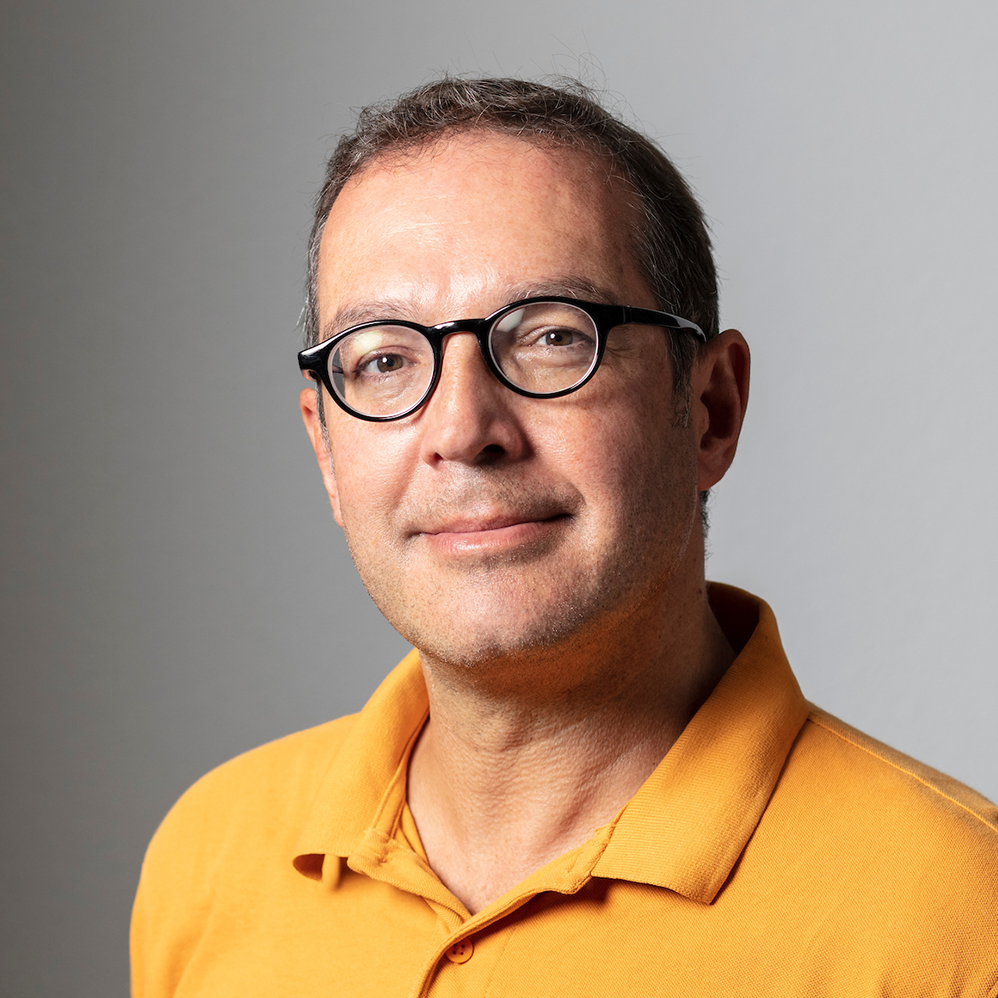








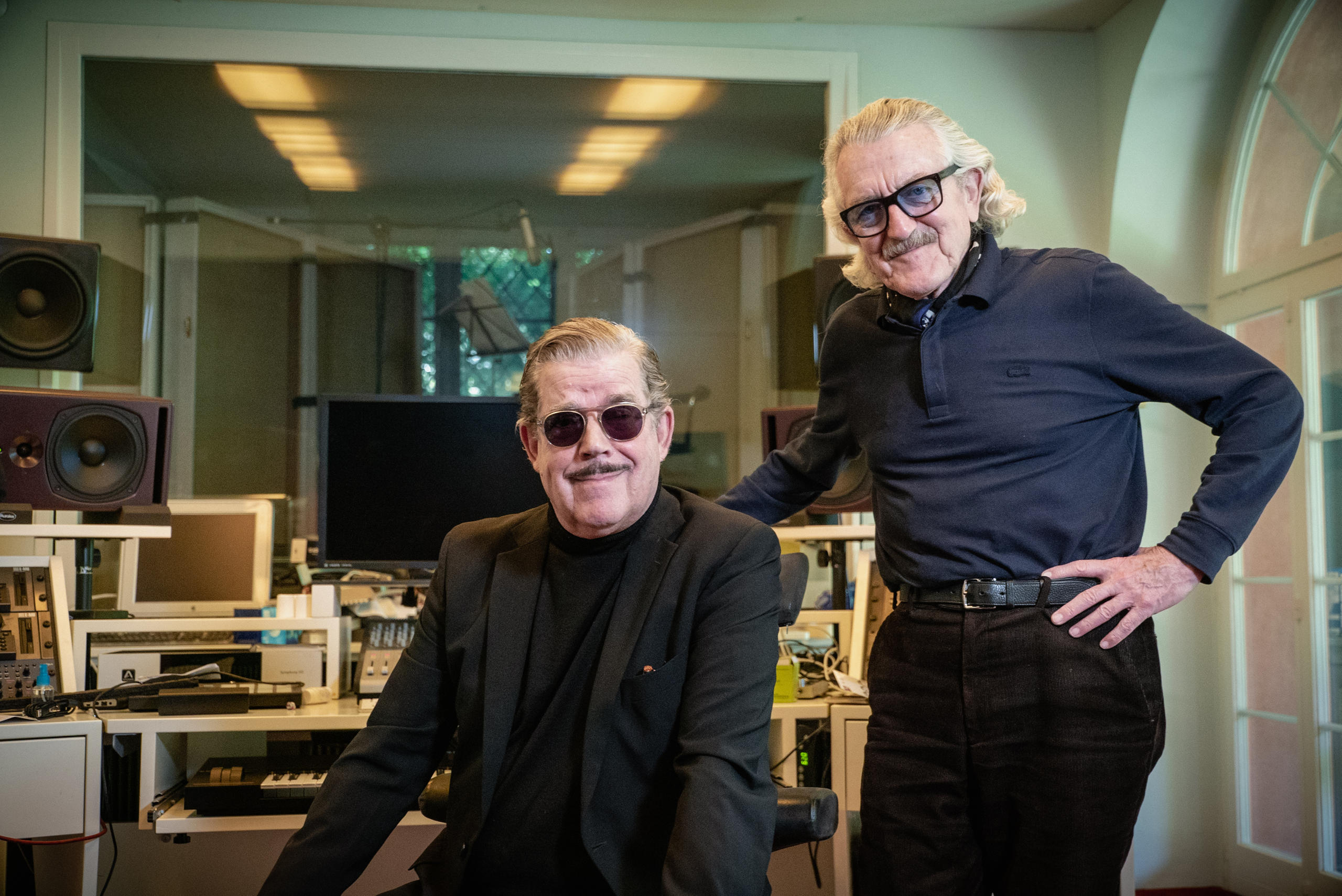

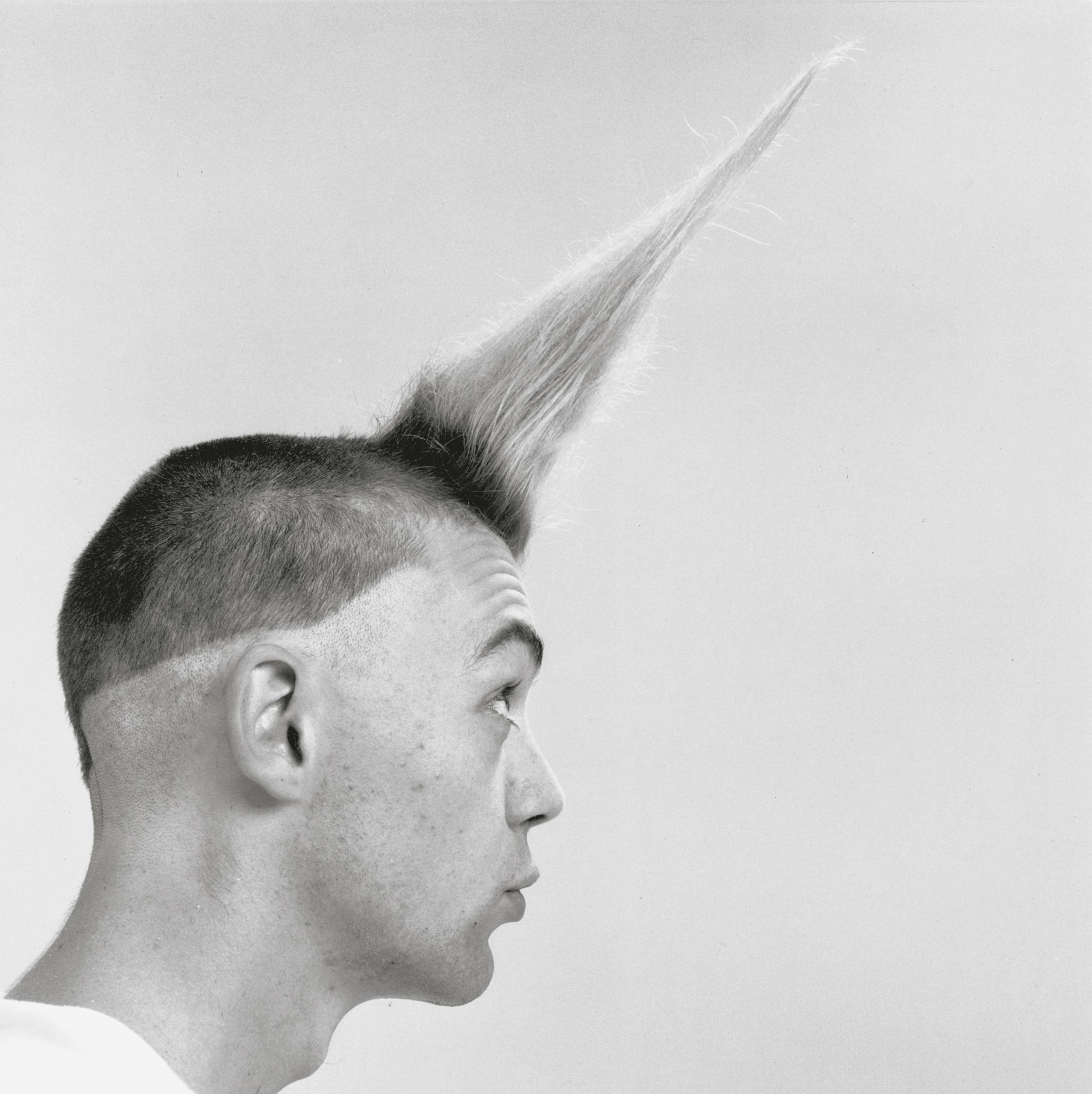

You can find an overview of ongoing debates with our journalists here . Please join us!
If you want to start a conversation about a topic raised in this article or want to report factual errors, email us at english@swissinfo.ch.